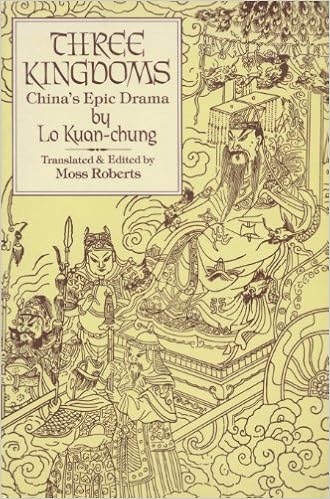This abridgment of the full text amounts about one-quarter of the original's size and about three-quarters of the original story. Roberts presents key scenes and summarizes large portions for the reader. In all, one gets a full sense of the essential plot, which seems an amazing feat really, when one thinks about how complex this novel is.
The story recounted here essentially involves the three kingdoms period in China, just as the Han dynasty was ending and three kings fought for control of the land, leading eventually to the short-lived Sung dynasty and the domination of China by the Mongols.
In the book, the Hans are beset by a disloyal general in the north lands Tsao-Tsao. Although he proclaims his loyalty to the emperor, he is most certainly looking to gather power to himself. Poised against him is a southern kingdom that has broken away and Liu Pei, the book's hero. Liu Pei aims to restore the Han dynasty.
The book, however, starts on a more personal note. Liu Pei becomes friends with two men with whom he forges a pact—namely, that they will always look out for each other. These two men thus forge Pei's main helpers during the course of his attempt to restore the empire. However, the pact proves also to be Pei's downfall, as the killing of one of the men means that he has to take revenge for his death by attacking a potential ally, even though his real enemy is Tsao-Tsao. Indeed, it is Tsao-Tsao who got the potential ally to kill the friend, knowing it would distract Pei.
Roberts discusses the various themes in the book and the way in which Pei represents both ultimate duty and honor but also how that intransigence to such order can lead to one's downfall. The other characters have similar links to larger ideas that are played out in the plot of the book.







No comments:
Post a Comment